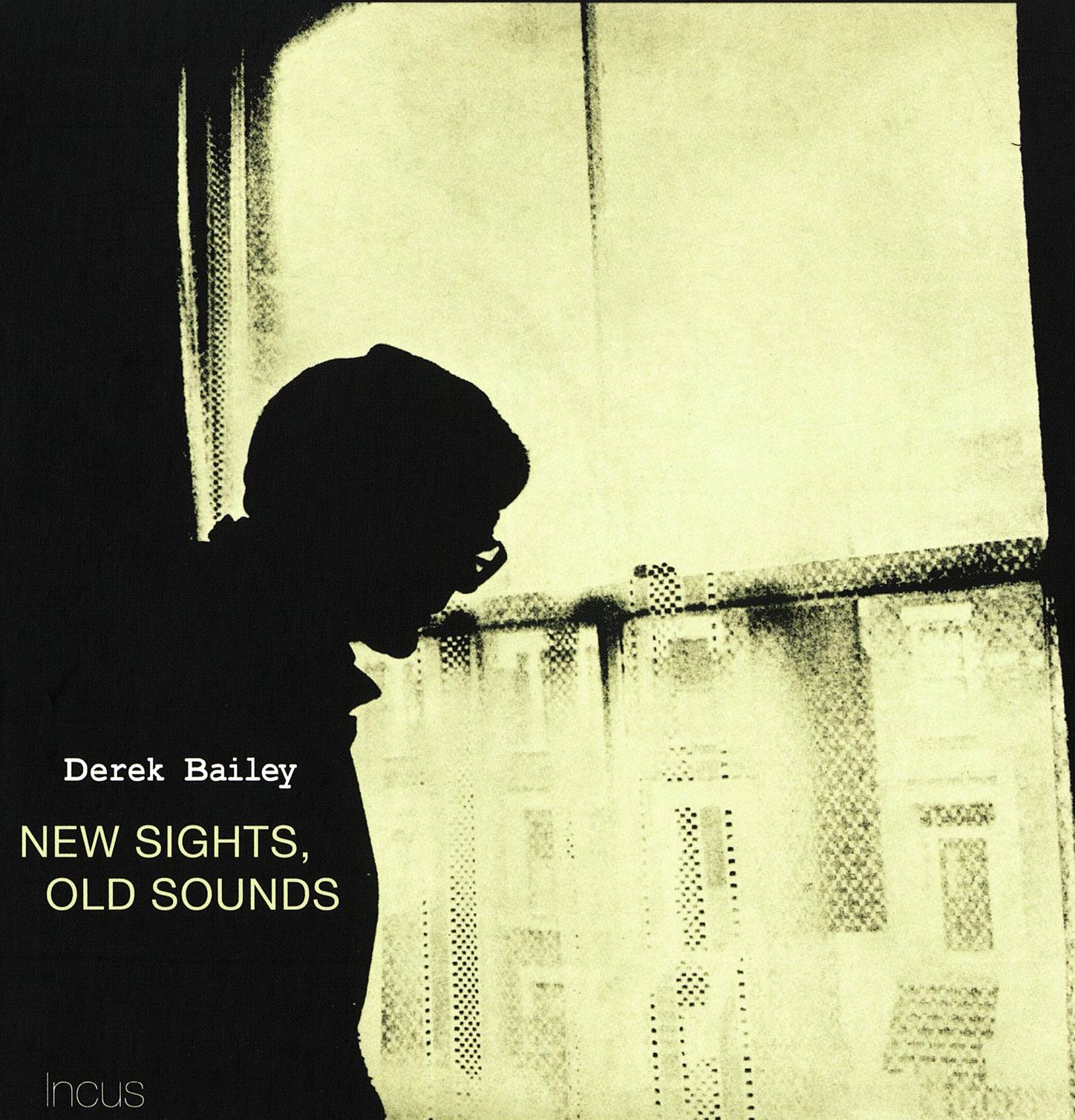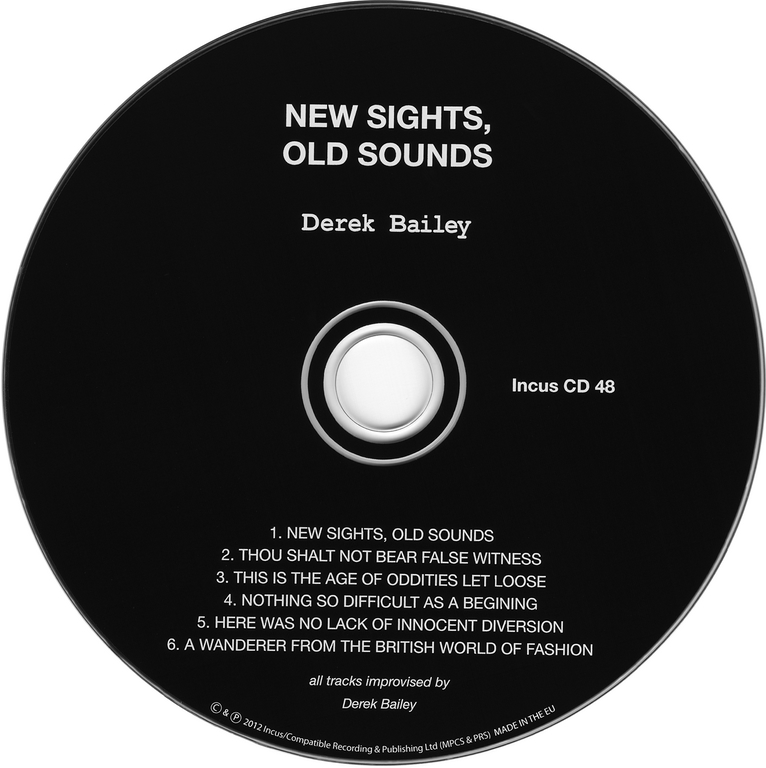

BOOKLET
Derek Bailey – New Sights, Old Sounds (and Solo Live)
Label: Incus Records – CD 048/049
Format: 2 × CD, Reissue
Country: UK
Released: 2012
Genre: Jazz
Style: Free Jazz, Free Improvisation
Tracklist:
New Sights, Old Sounds
1.01 – New Sights, Old Sounds 18:52
1.02 – Thou Shalt Not Bear False Witness 09:16
1.03 – This Is The Age Of Oddities Let Loose 03:09
1.04 – Nothing So Difficult As A Beggining 04:50
1.05 – Here Was No Lack Of Innocent Diversion 02:54
1.06 – A Wanderer From The British World Of Fashion 03:14
Solo Live
2.01 – Live In Nagoya (Part 1) 17:00
2.02 – Live In Nagoya (Part 2) 12:50
2.03 – Live At Kalavinka 20:35
Credits:
Acoustic Guitar, Electric Guitar Derek Bailey
Photography By [Cover] – Toshio Kuwabara
Photography By [Inner] – Masahiko Imai, T. Kuwabara
Producer – Aquirax Aida
Recording – Tsutomu Suto
Design – A. Aida, T. Suto
Notes:
New Sights, Old Sounds:
Recorded on 5 May 1978 at Betty Studio, Tokyo, Japan.
All titles are from Byron’s “Don Juan”.
Solo Live:
Tracks 1 & 2 were recorded on 21 April 1978 at Meien-Kaikan, Nagoya, Japan.
Track 3 was recorded on 3 May 1978 at Kalavinka, Machida, Japan.
Front cover photograph [D. Bailey looking out window of 14 Downs Road]
This release is a complete reissue of the double LP titled “03/04” issued on the Japanese Morgue Label in 1978.
Volcanic Tongue review:
Necessary reissue of one of the greatest and rarest solo improvised guitar sides of all time, Derek Baileys Japan-only 1978 masterpiece New Sights, Old Sounds: New Sights, Old Sounds was recorded live and in the studio in Japan on a trip organised by the legendary underground music critic/curator Aquirax Aida (who Bailey later dedicated the Aida LP to) where Bailey hooked up and played with such pivotal figures as Kaoru Abe, Motoharu Yoshizawa, Toshinori Kondo and Mototeru Takagi. Originally released on Aidas short-lived though legendary Morgue label, the album quickly fell out of print and was never re-released due to the untimely death of Aida and the unknown whereabouts of the master tapes. Thanks to critic and Japanese scholar Alan Cummings these were eventually located in the early 2000s and gifted to Incus. This beautifully presented set, which comes in an exact repro shrunken card gatefold, restores one of the key Derek Bailey recordings as well as one of the most wide-ranging investigations into the potential for radical new tongues for improvised acoustic and electric guitar.
You hear a lot about Dereks attack, his angularity, his aggressive way with note clusters, the radical auraless modernity of his approach but theres little said about how gentle he can be as a player. Evidence abounds on this set of his ability to combine ultra dexterity with moments of soft reflection, with extended sections of fluttering, suspended notes, combining long feedback chorales with single tones plucked straight out of the air. The set is divided into two discs, the first a series of studio recordings cut in Tokyo in May of 78 with titles taken from Byrons Don Juan, the second two live shows from Nagoya in April and Machida in May. The studio recordings are dazzling, with an up-close recording style that allows you get deep inside the warp and woof of the music, with razzing single note constructs propelled by stabs of volume pedal into voids of hovering amplifier tone. At points theres almost a tsugaru-like quality to the way he clips and shears notes and the logic of his instant compositions are brain-massaging in the complex arc of their trails. The live shows are simply phenomenal, with Bailey making massively expressive use of feedback while combining blunt avant/punk chord blurt with squealing steel strings and moments of lucid, almost classically-inflected drone. Cant recall how many times I must have spun this mind-blowing set over the years so its great to have a handy CD edition to reach for the next time I wanna spend a few hours on the other side. One of the key documents of the heroic phase of British free improvisation as well as a striking moment of cultural osmosis that set the seeds for much of what was to come in the Japanese underground as well as one of the greatest solo guitar sides of all time. Your collection is all the poorer without it simply cant recommend this enough. Suffice to say youve never heard anything remotely like it.
